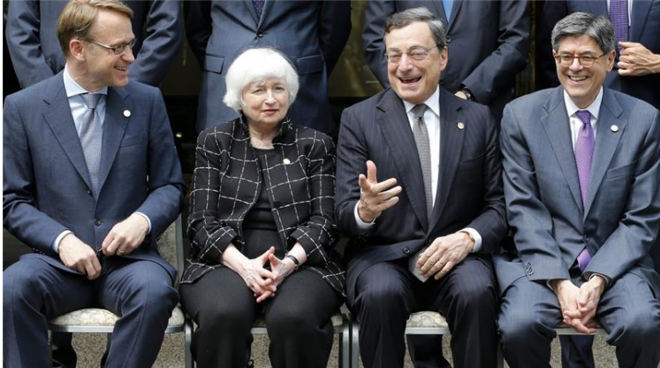Advertisement
Advertisement
G7 Makes Little Progress As US and Japan Remain At Odds
By:
Forex traders will spend Monday evaluating comments and statements from the G7 over the weekend. The Bank of Japan is expected to begin a program of
Forex traders will spend Monday evaluating comments and statements from the G7 over the weekend. The Bank of Japan is expected to begin a program of market invention to lower the value of the yen but was holding off until after the summit. The yen is a surprise move actually gained momentum this morning to trade at 109.82 with a gain of 31 points as the US dollar gave back some of its gains.
The US issued a harsh warning to Japan against intervening in currency markets on Saturday as the two countries’ differences over foreign exchange overshadowed a Group of 7 finance leaders’ gathering in the Asian nation. Japan and the United States are at logger-heads over currency policy with Washington saying Tokyo has no justification to intervene in the market to stem yen gains, given the currency’s moves remain “orderly”.
[wibbitz]bd6e4df4362bb42da94638163c4bbf321[/wibbitz]
The rift was on full show at the G7 finance leaders’ meeting in Sendai, northeastern Japan, with U.S. Treasury Secretary Jack Lew saying he did not consider current yen moves as “disorderly” after a bilateral meeting with his Japanese counterpart.
Reuters said that Japanese Finance Minister Taro Aso said there was no “heated debate” on the yen with Lew, and that it was natural for countries to have differences in how they see exchange-rate moves. But the meeting with Lew did not stop him from issuing verbal warnings to markets against pushing up the yen too much.
In a statement which presented a clear rebuff to Japan, the group “underscored the importance of all countries refraining from competitive devaluation”. In response, Japanese finance minister Taro Aso said Saturday that he told his US counterpart Tokyo was merely reacting to “one-sided, abrupt, and speculative moves” in forex trading.
A softer currency has been one of the pillars of Japanese Prime Minister Shinzo Abe’s bid to revitalize the world’s number-three economy since he swept to power in late 2012. Japan last intervened in currency markets around November 2011, when it tried to stem the yen’s rise to keep an economic recovery on track after the quake-tsunami disaster earlier that year.
The yen is expected to be volatile all week. The USDJPY opened the week at 110.13 and could climb as high as 112 today as trader’s watch for steps taken by the BoJ. The bank may hold off until the release of inflation data due on Friday. Monday’s trading has been very volatile.
Having agreed to only minor coordination of their varying strategies for boosting growth, the G7 finance meeting turned on Saturday to issues such as what the group called terrorism financing, tax evasion and support for fighting pandemics. Most of the governments of the G7 favor more pro-active government spending to help support flagging growth, while Germany has remained more conservative on fiscal matters, regarding structural reforms as crucial.
The US dollar extended its biggest advance since January to a third week as traders weighed the possibility of tighter monetary policy in the US against stimulus in Japan and other major economies.
The US currency has rallied since the minutes of the US Federal Reserve’s most recent meeting prompted traders to add to bets on a rate hike next month. The greenback is holding at 95.31 and is expected to continue to climb this week. The move was also spurred by Bank of Japan Governor Haruhiko Kuroda reiterating that he is ready to add to stimulus if necessary.
About the Author
Barry Normanauthor
Advertisement
